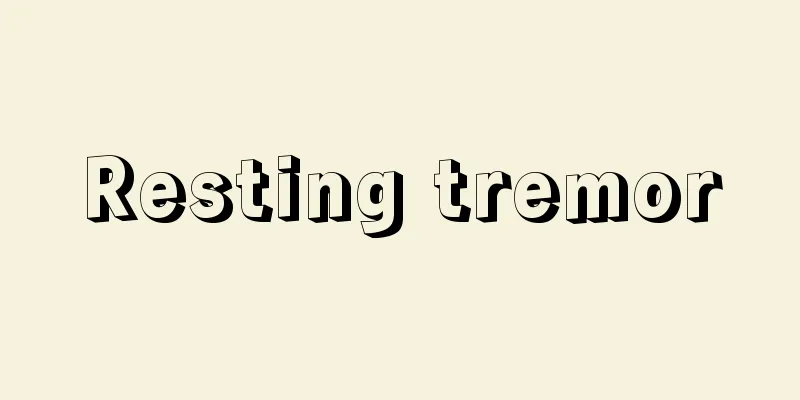Born: 22 November 1930, Bury St Edmunds
[Died] September 11, 2017. London. British director and director. Full name: Sir Peter Reginald Frederick Hall. Graduated from Cambridge University in 1953. He became involved in theater while he was a student there, and directed his first commercial play at the Theatre Royal in 1953, after which he became an assistant director. From 1954 to 1956, he served as a director at the London Art Theatre, directing the London premieres of Samuel Beckett's "Waiting for Godot", Jean Anouilh's "La valse des toréadors", and Eugène Ionesco's "La Leçon". From 1957, he directed at the Shakespeare Memorial Theatre. In 1960, he became the principal director, renamed the theatre the Royal Shakespeare Theatre, and formed the exclusive Royal Shakespeare Company. In 1960, he acquired the Aldwych Theatre, which became the company's London home base, and directed the London premiere of Anouilh's Becket (1962) and the premiere of Harold Pinter's The Homecoming (1965). He was noted for directing works by William Shakespeare and other contemporary authors, including Pinter. He served as principal director of the National Theatre from 1973 to 1988. He subsequently formed his own theatre production company and was active in a wide range of fields, including opera and film. He was knighted in 1977. hole
Hall, Jeffrey C. Born May 3, 1945 in New York, New York. A geneticist from the United States. While studying at Amherst College, he became interested in basic science and the genetic mechanisms of Drosophila melanogaster, and in 1971 obtained his PhD in genetics from the University of Washington in Seattle. After serving as a postdoctoral researcher at California Institute of Technology, he joined Brandeis University in 1974, where he became a professor in 1986 and a professor emeritus in 2002. In 2004, he became an adjunct professor at the University of Maine. He is engaged in research into courtship behavior and biological rhythms in Drosophila melanogaster. In 1984, together with Michael Rosbash, a collaborator at the same university, he succeeded in identifying the clock gene period , which controls the fly's biological clock, and found that the protein period , PER, accumulates in cells at night and breaks down during the day. At almost the same time, Michael W. Young of Rockefeller University also succeeded in identifying period . After further detailed research, he clarified the mechanism of the "transcription-translation negative feedback loop" in which clock gene proteins suppress their own expression (transcription → translation), thereby creating a rhythm with a 24-hour cycle (circadian rhythm). In 2017, he was awarded the Nobel Prize in Physiology or Medicine (→Nobel Prize) along with Rothbash and Young for "the discovery of the molecular mechanisms that control circadian rhythms." He has received the Gruber Prize (shared with Rothbash and Young) in 2009 and the Gairdner International Award (shared with Rothbash and Young) in 2012. He is also involved in editing several scientific journals. He was appointed a member of the American Academy of Arts and Sciences in 2001 and the National Academy of Sciences in 2003. hole
Hall, Stuart McPhail Born: February 3, 1932 in Kingston, British Jamaica
[Died]2014.2.10. London, UK. A Jamaican-born British cultural theorist. A pioneer of cultural studies, an interdisciplinary study of the role of social institutions in cultural formation and the networks of meaning through which individuals and groups understand and communicate with each other. After studying at Jamaica College, he received a Rhodes Scholarship in 1951 to study literature at Melton College, Oxford, UK. He then left literary studies to study popular culture. He was the founding editor of the New Left Review from 1960 to 1961, and in 1964 became a research fellow at the Centre for Contemporary Cultural Studies at the University of Birmingham, where he served as its deputy director and director. In 1979, he gained international acclaim for his work on the widespread political, economic and cultural transformation he coined the term "Thatcherism." In the same year, he became professor of sociology at the Open University, retiring in 1998. hole
Hall, James Born: August 19, 1793, Philadelphia
[Died] July 5, 1868, Cincinnati, Ohio. American lawyer, banker, editor, historian, and short story writer. Founder of the Illinois Monthly Magazine (1830-32) and Western Monthly Magazine (32-36), the first literary magazines in the west, he worked to collect records of legends, customs, and habits of the western frontier. His major works include the short story collections Legends of the West (32), Tales of the Border (35), the historical books Sketches of History, Life, and Manners in the West (2 volumes, 34-35), and The Romance of Western History (57). hole
Hall, John L. Born 1934 in Denver, Colorado. American physicist. Graduated from Carnegie Institute of Technology in 1956, and received his master's degree (1958) and doctorate (1961) from the same university. In 1962, he joined the National Bureau of Standards (NBS), the predecessor of the National Institute of Standards and Technology (NIST), and worked on developing technology to stabilize the frequency of laser light for precise measurement of the speed of light. By 2000, he had developed a technology called an optical frequency comb (meaning comb) by making the most of the properties of coherent light generated by lasers, and succeeded in determining the frequency of light with a high accuracy of one part in a quadrillion (15 digits). For this achievement, he was awarded the Nobel Prize in Physics in 2005 along with Roy J. Glauber and Theodor W. Hensch, who developed the optical frequency comb at roughly the same time. He was a member of the National Academy of Sciences in 1984. He was awarded the Max Born Prize in 2002. hole
Hall, Marshall Born 18 February 1790 at Basford, Nottinghamshire
[Died] May 1857/August 11, Brighton British physiologist. Founder of reflex theory. Graduated from the University of Edinburgh in 1812, he studied medicine at the universities of Paris, Berlin, and Göttingen. Became a doctor at the General Hospital in Nottingham in 1817, and moved to London in 1826, where he practiced until 1853. His most important work was his theory of reflex movements to protect the individual, which are not accompanied by will, perception, or consciousness, described in On the Reflex Function of the Medulla Oblongata and the Medulla Spinalis (1832). He also reported on the exchange of gases between the capillaries and tissues in blood circulation, and on artificial respiration and epilepsy. hole
Hall, G(ranville) Stanley Born February 1, 1844 in Ashfield, Massachusetts.
Died: April 24, 1924. Worcester, Massachusetts. American psychologist. Professor at Johns Hopkins University. President and Professor of Psychology at Clark University. He was the first American to study under W. Bundt and served as his assistant. After returning to the United States, he established America's first psychology laboratory at Johns Hopkins University (1883). He adopted the ideas of Bundt, CR Darwin, and S. Freud, and studied the psychology of children, adolescents, and old age, becoming one of the fathers of modern American psychology. He founded four research journals, including the American Journal of Psychology. His major works include Adolescence (1904), Senescence, and the Last Half of Life (22). hole
Hall, James Born September 12, 1811 in Hingham, Massachusetts.
Died: August 7, 1898, Bethlehem, New Hampshire. American geologist and paleontologist. He was assistant professor at Rensselaer Polytechnic Institute (1832), and later professor. He served in the state geological surveys of New York, Iowa, and Wisconsin, and was director of the National Museum of Natural History in New York (1971). He was a member of the National Academy of Sciences. He studied the stratigraphy and geological structure of the Paleozoic strata in the Appalachian Mountains in the southeastern United States, and discussed the formation of the Appalachian Mountains based on the study of lithofacies changes and fossils, laying the foundation for the concept of geosyncline, which is the basis of orogeny. His main work was The Palaeontology of New York (47-94). hole
Hall, Edward [Born] Around 1498
[Died] 1547
British historian. After graduating from King's College, Cambridge, he served as a minor magistrate for the City of London from 1533 to 1535, and as a Member of the House of Commons in 1529 and 1542. In 1548, he published the Chronicle (officially known as The Union of the Two Noble and Illustre Families of Lancaster and Yorke), which mainly describes the history of the Wars of the Roses. His descriptions of the reign of Henry VIII have a literary value far superior to other chronicles of the same era, and became the material for Shakespeare's historical plays. hole
Hall, Asaph Born October 15, 1829 in Goshen, Connecticut
[Died] November 22, 1907, Annapolis, Maryland. American astronomer. Professor of mathematics at the U.S. Naval Observatory (1863). From 1875 onwards, he used the observatory's 26-inch (66 cm) refracting telescope to observe planets and their satellites, measure the orbits of double stars, and measure parallax. He is particularly famous for discovering two moons of Mars in 1877 and calculating their orbits. After retiring from the Navy in 1891, he became a professor of astronomy at Harvard University (1895-1901). hole
Hall, Edwin Herbert Born November 7, 1855, Gorham, Maine
[Died] November 20, 1938. Cambridge, Massachusetts. American physicist. After graduating from Baldwin College, he studied at the Johns Hopkins University Graduate School. While in graduate school in 1879, he discovered the Hall effect, and received his doctorate for this research. In 1881, he visited Germany and carried out precise measurements of the Hall effect in the laboratory of H. Helmholtz. He served as an assistant professor at Harvard University (1888) and professor (1895-1921). He also worked hard to improve physics experiments in secondary education. hole
Hall, Charles Martin Born December 6, 1863 in Thompson, Ohio
[Died] December 27, 1914, Daytona Beach, Florida. American chemist and metallurgist. While studying at Oberlin College, he devoted himself to the study of aluminum refining methods, and after graduating (1885), he continued his research in the university's laboratories, inventing the electrolytic metallurgy process in 1886 (around the same time, P. Herroux discovered a similar method in France). In 1888, with the support of banker A. Mellon, he founded the Pittsburgh Manufacturing Company (now Alcoa) and commercialized the aluminum industry. In 1890, he became the company's vice president. hole
Hall, Gus Born October 8, 1910 in Ironside, Minnesota
[Died] October 13, 2000. American politician, born in New York. Raised in a family of Finnish parents who were both founding members of the Communist Party of America, he joined the party at the age of 17. At the age of 21, he went to Moscow and studied at the Lenin Institute for two years. After returning to Russia, he became an organizer for the steelworkers' union and was imprisoned several times. He was elected Secretary General of the Party in December 1959 and re-elected in June 1966. He ran for president in the 1972 and 1976 elections. hole
Hall, William Edward Born: August 22, 1835, Leatherhead
[Died] November 30, 1894. Coker Court British scholar of international law. Although he taught at a lecture, he continued his research as an independent researcher. His major work, A Treatise on International Law (1880, translated by Taro Tatsusaku), was written in an artistic style, and his fame extended not only to Britain, but also to the United States and Japan. hole
Hall, Lyman Born April 12, 1724 in Wallingford, Connecticut
Died October 19, 1790. Burke Country, Georgia. A politician during the American Revolution. One of the signers of the Declaration of Independence. In 1758, he emigrated from New England to Georgia, where he was one of the founders of the town of Sunbury and opened a medical practice. He was active in the Revolutionary War, and served as a representative of the Continental Congress from 1775 to 1780. In 1783, he became the Governor of Georgia. hole
Hall, Harry Reginald Holland Born: September 30, 1873, London
[died] October 13, 1930, London. British archaeologist. Worked at the British Museum from 1896. He supervised excavations at Deir el-Bahari in Egypt and Ur in Babylonia, and became head of the Egyptian and Assyrian department of the museum in 1924. Source: Encyclopaedia Britannica Concise Encyclopedia About Encyclopaedia Britannica Concise Encyclopedia Information |










